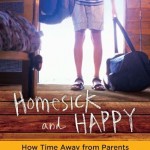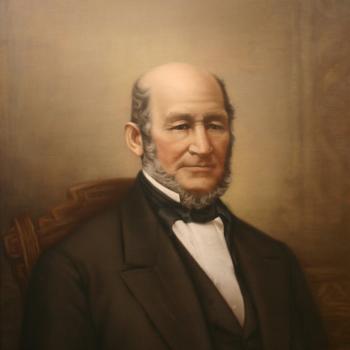Even in the most wonderful family, as children grow up there are developmental tensions and conflicts that cannot be resolved. There may be a temperamental mismatch between one of parent and child, one sibling who requires more care, or one child who is driven to push the envelope of family structure, thereby driving everyone crazy.
Thus begins Michael Thompson’s explanation, in his book Homesick and Happy, of our children’s need for a “second family.” Thompson contends that because of the unresolvable tensions in families, children, and especially teens, need to find adults outside the family to serve as mentors and confidants, adults who will respect and affirm their gifts and will act as a “nonjudgmental restraining influence.”
Thompson recommends summer camp as one such second family, but the lure of a second family was not a big part of why we are sending our children to camp this summer. Our children already have a second family – with our extended church family.
These are adults who have known and prayed for my children since they were babies. Twenty-year-old men who teach the boys how to play basketball, and remind them to be respectful to older adults. Thirty-year-old women who take Nafisa to get her hair done because I clearly don’t have a clue. Seventy-year-old women who put their arms around the boys when they are having trouble sitting still in church. There is our pastor who lays his hand on Zach’s head every time he sees him and prays that he would “have the mind of Christ.” There are “aunties” who buy expensive tickets to see Ezra in the Nutcracker, “uncles” who drop off Patriots gear when Zach was going to his first professional game, and a godmother who reads them first drafts of the potty-humored children’s novel she is writing. My children gravitate toward these adults, the ones with just the right combination of challenge and acceptance, and whose cupboards are stocked with the junk food we don’t keep at home.
Second Families are especially important, I think, for those of us who homeschool. We often talk about how many negative interactions our children are spared by not being in school and about the close family relationships that develop at home. But there is another side as well. Our patterns form deeper grooves because we are around each other all of the time. All of patterns. Which isn’t always good. As Thompson writes:
Of course, our first families sometimes do bring out the best in us, but more often they happen to bring out the worst in us, too. We are needier and whinier with our moms and dads, brothers and sisters than we are with almost anyone else.
And I am more angry and less patient with my children than I am with anyone else. And we get to do this all day long. Every day. With every stressful writing assignment, and lunch clean up, and hour upon hour of my agenda conflicting with their desires. Sometimes it’s ugly.
I am grateful that they will set down a few new grooves at camp. But I am most grateful for my church family, who are there for my children all year long, reminding them – and me – who they are when I occasionally forget.















